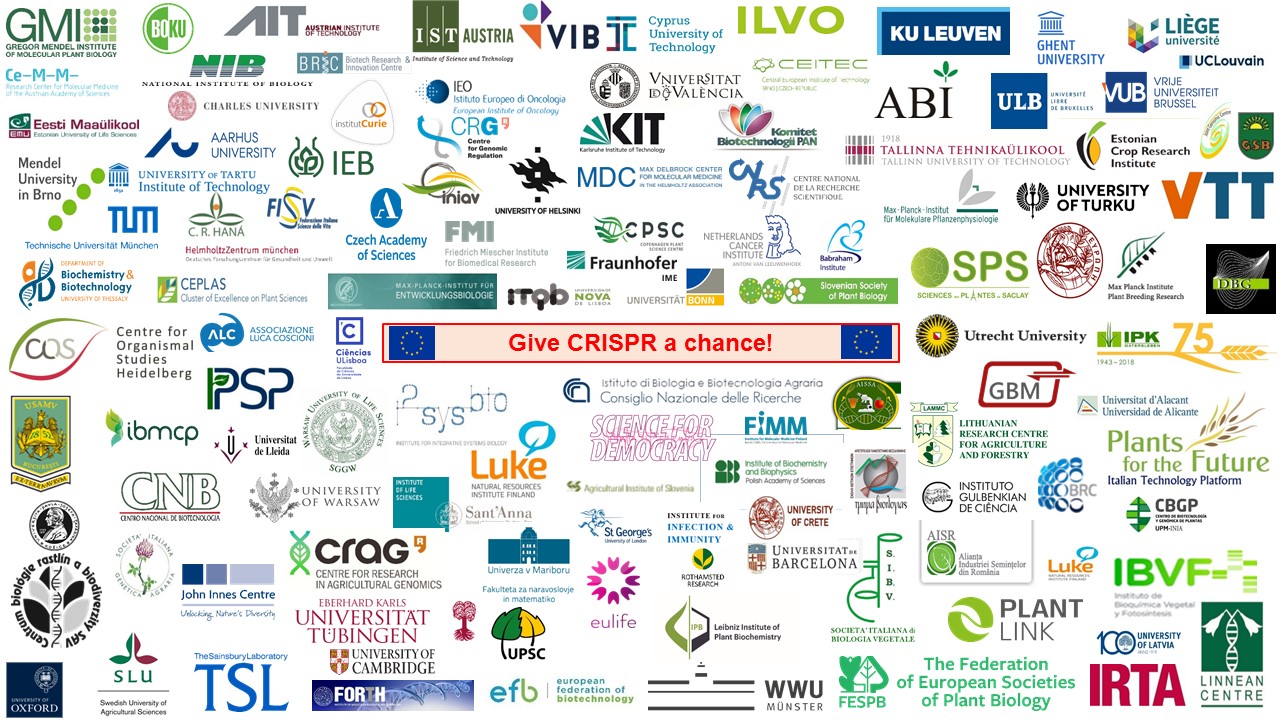
European Scientists Join Forces to Enable Potential of Genome Editing
July 31, 2019| |
On July 25, 2018, the European Court of Justice (ECJ) ruled that plants developed through genome editing are also genetically modified organisms (GMOs) which are not exempt from GMO legislation. The EU GMO legislation issued in 2001 no longer correctly reflects the current state of scientific research and knowledge, according to the Open Statement for the use of genome editing for sustainable agriculture and food production in the EU, released by the European scientific community on July 25, 2019.
In the Open Statement, scientists from 127 research facilities across Europe urgently call upon European institutions, including the European Council, the new European Parliament, and the upcoming European Commission to take appropriate legal action to enable European scientists and breeders to apply genome editing for sustainable agriculture and food.
"The ability to use genome editing is crucial for the well-fare and food security of European citizens," the Open Statement stated. The scientists state that subjecting crops obtained through modern genome editing to GMO regulations will deny European consumers, producers, researchers, and entrepreneurs important opportunities in sustainable agriculture.
For more details, read the press release from VIB. The Open Statement is also available on the VIB website.
| |
You might also like:
- Change Needed for Europe's Assessment and Approval Process for Genome-Edited Crops
- 22 European Business Organizations Call for Pro-Innovation Plant Breeding Rules in the EU
- 2019 Eurobarometer Reveals Most Europeans Hardly Care About GMOs
Biotech Updates is a weekly newsletter of ISAAA, a not-for-profit organization. It is distributed for free to over 22,000 subscribers worldwide to inform them about the key developments in biosciences, especially in biotechnology. Your support will help us in our mission to feed the world with knowledge. You can help by donating as little as $10.
-
See more articles:
-
News from Around the World
- Reference Genomes Show Strengths, Similarities of Grain and Sweet Sorghum
- USDA Approves Field Trials of Gene-edited, Virus Resistant Tomatoes
- Scientists and Regulators Tackle Issues on Agri-biotech and Biosafety in Jember, Indonesia
- New Software Enables Sensitive and Customized Off-target Detection for CRISPR-Cas9
- European Commission Grants Import Permit for Corn Rootworm Resistant Corn
- Plant-based Beyond Meat Offers a Healthier Option, Nutrition Experts Weigh In on the Hype
- European Commission Authorizes 10 GM Crops for Food and Feed
-
Research Highlights
- OsNCED5 Gene Controls Salt and Water Stress Tolerance in Rice
- Scientists Pinpoint a Rice Gene that Confers Broad-spectrum Herbicide Resistance
-
Plant
- DNA-free Genome Editing Using Preassembled CRISPR-Cas9 with Ribonucleoproteins
- European Scientists Join Forces to Enable Potential of Genome Editing
-
Read the latest: - Biotech Updates (October 22, 2025)
- Gene Editing Supplement (October 29, 2025)
- Gene Drive Supplement (February 22, 2023)
-
Subscribe to BU: - Share
- Tweet

